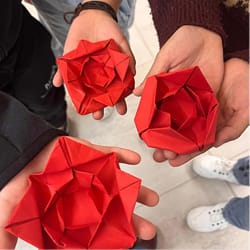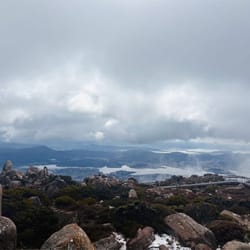The most happening month of the BBC Proms is August although, throughout the summer, you can attend famous classical music concerts in the splendid setting of the Royal Albert Hall.
A truly unmissable event for those who like this kind of music but I happened to go to one of these concerts and the atmosphere is great even for those who do not know this music genre too well.
And this year too the Proms returned to London.
It is apparently the most important classical music festival in the world and it’s organized by the BBC channel which sponsors the event.
The Proms usually start in July and last until September offering dozens of classical music concerts, most of which held in the Royal Albert Hall, the most famous concert hall in London, in the exclusive South Kensington neighbourhood opposite the Albert Memorial and the Kensington Gardens.
The Proms started at the end of the 19th century, when it was decided to create a series of concerts at popular prices to bring the public closer to classical music so they could be able to attend a show of high levels in an informal atmosphere.
The term Proms derives from the French word promenade – walk - as it was possible to walk around the concert hall during the concert in the 19th century (now you must remain sitting in your assigned seat). Prommers was the name given to the spectators of these classical music concerts.
The price of tickets has remained affordable, you can attend a classical music concert in the beautiful Royal Albert Hall concert hall for just over five pounds, some concerts are even free and others can be up to fifteen pounds.
There is no advance sale so the tickets for £5 are usually sold starting an hour before the beginning of the concert directly at the Royal Albert Hall box office and, unfortunately, it is easy to find long queues if you arrive late.
The last evening of the Proms is the most important and usually falls on the second Saturday of September.
This last closing concert is broadcast live by the BBC and traditional English pieces are performed by English artists.
The Royal Albert Hall is one of the most representative monuments of Victorian London and still hosts some of the most important entertainment events in London besides the BBC Proms.
This beautiful building is located at the north end of the South Kensington district, in an area once known as Albertopolis.
The important Kensigton Gore artery separates the Royal Albert Hall from the Albert Memorial, another monument erected in honour of Prince Albert, spouse of Queen Victoria.
The building is a cultural foundation and a financially self-sufficient registered charity that does not receive funds from the government.
It was built to host a remarkable series of events: concerts, exhibitions, ballets, festivals, lectures, dance competitions, poetry reviews and even a circus.

The Royal Albert Hall
The Royal Albert Hall was born from an idea by Prince Albert after the Great Exhibition in London of 1851 and the works started that year.
The Prince wanted to create a sort of cultural pole with the aim of promoting knowledge, understanding and appreciation of the Arts and Sciences.
The original name of the building should have been 'The Central Hall of Arts and Sciences' but was changed to honour the prince at the time of his premature death.
Immediately afterwards, a close collaborator of the Prince took charge of completing the work and, inspired by the structure of the Roman amphitheatres, gave the task of carrying out the works first to Francis Fowke and, later, to another engineer of the court, Henry Scott.
The Hall was inaugurated by the queen herself in 1871.
In addition to attending concerts and various performances, it is possible to take a paid tour with expert guides who, during the day, not only tell the history of the building but lead visitors to explore even the most hidden and normally inaccessible parts of the Hall (like the Gallery and the private apartments of the queen) as well as the secrets of the backstage and the stage itself.

King Albert’s Memorial






























































